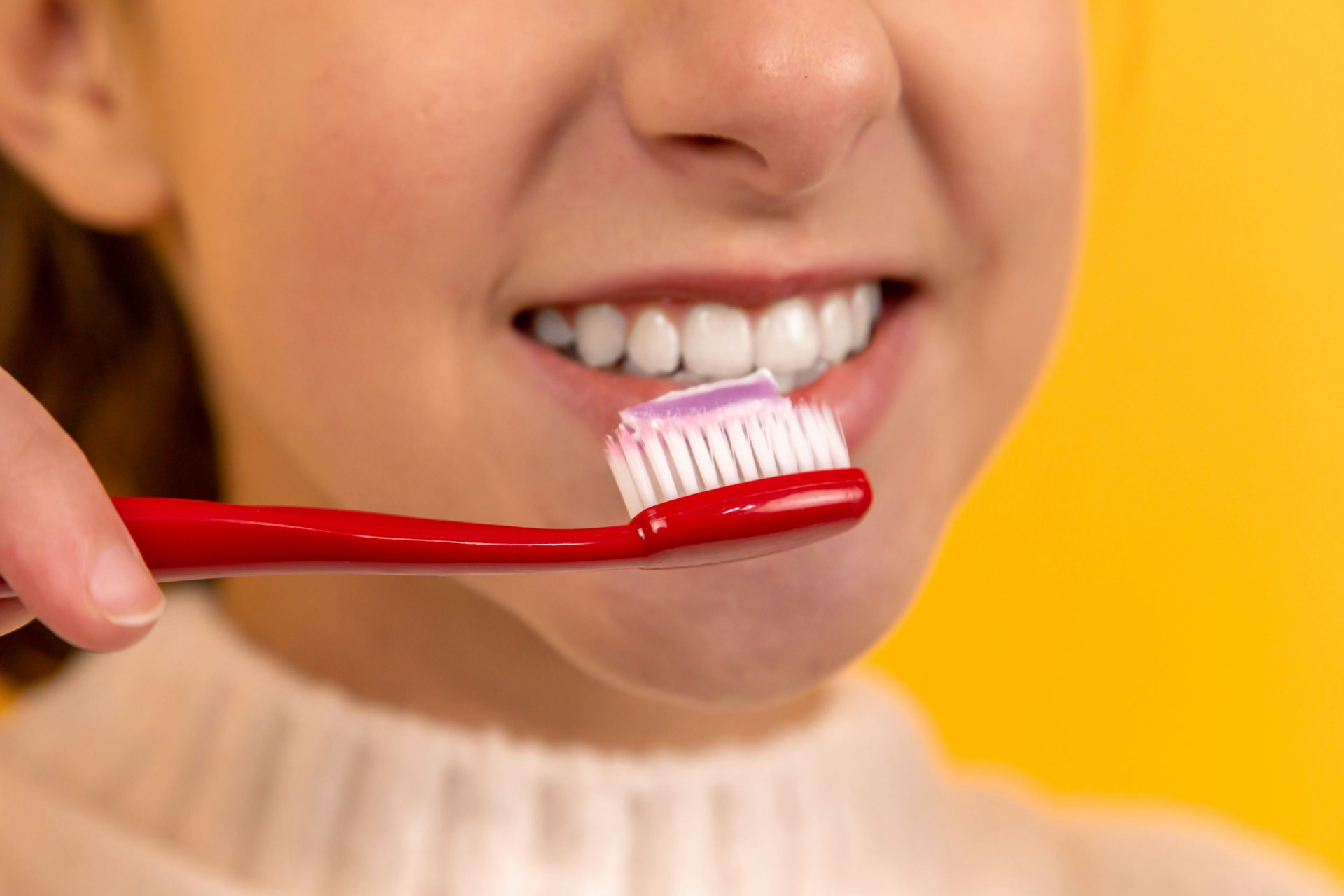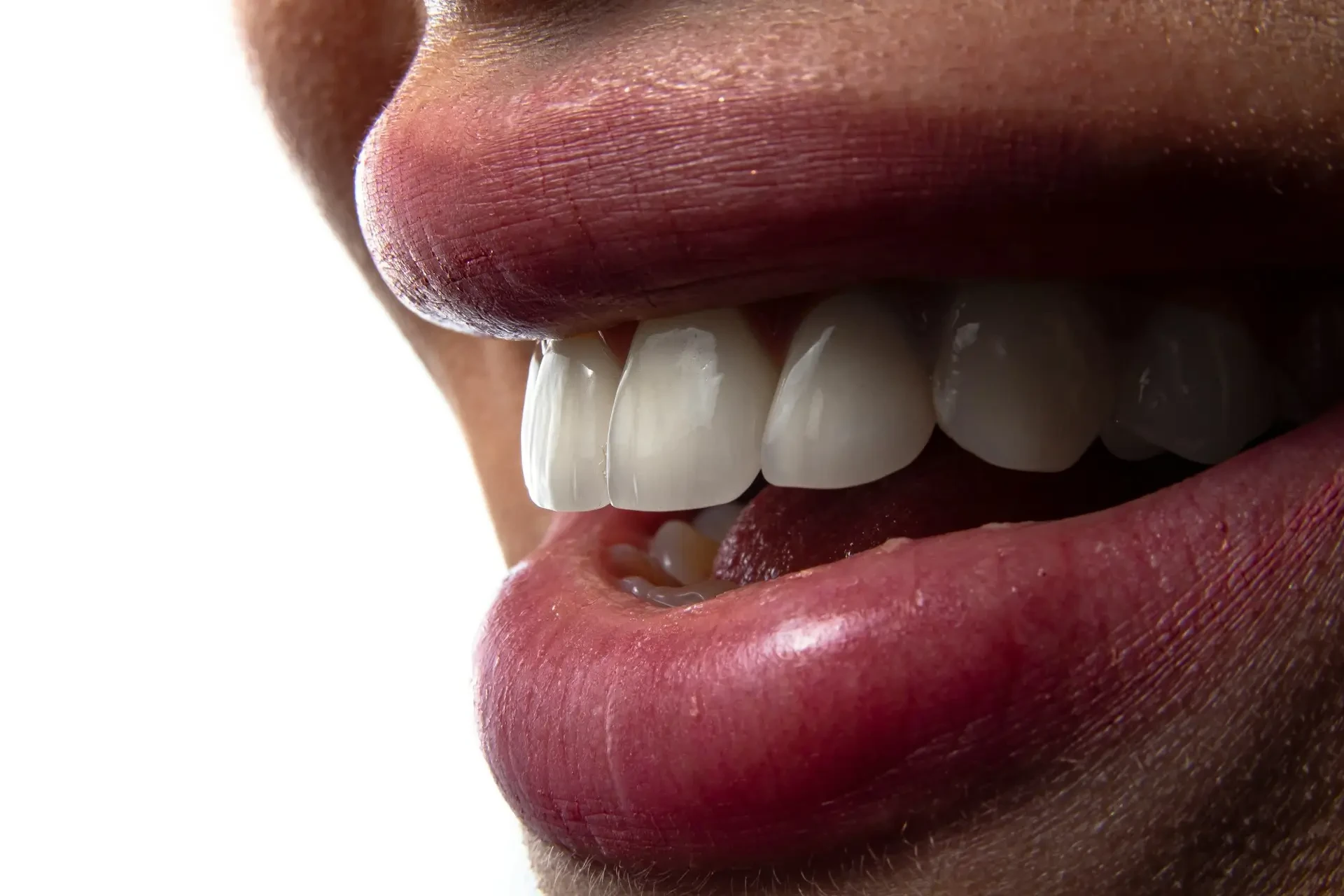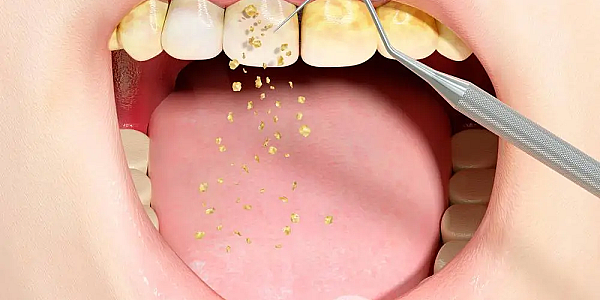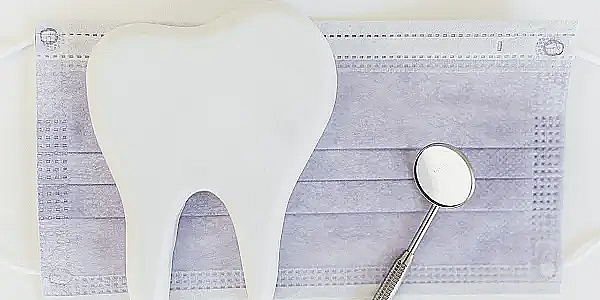Scaling - How long does scaling take, how often should it be done & What are the benefits?
A healthy and bright smile starts with proper oral hygiene, which involves brushing your teeth twice a day, flossing, and using mouthwash. However, even with rigorous hygiene, tartar can still form, especially if professional dental cleanings are not performed by the dentist. Find out more about scaling and what to expect when choosing this procedure.
What is scaling?
Scaling is a professional dental cleaning procedure that removes plaque and tartar from the teeth. Scaling is part of a set of preventive dental procedures, performed to prevent tooth decay and gum problems (gingivitis or periodontitis). It is not a painful procedure and can be performed manually, with a laser, or with the help of an ultrasound device.
What are tartar and plaque, and why do they remain on the teeth?
Tartar is a hard buildup of bacteria and mineral deposits that forms on the surface of your teeth. When bacteria naturally present in your mouth mix with food debris, it forms a sticky film called plaque. Nearly 25,000 bacteria are involved in the formation of plaque. Tartar typically forms on the outer surface of your upper molars, the inner surface of your lower teeth, and in the spaces between your teeth.
Over time, plaque hardens and becomes much more difficult to remove. If it is not properly cleaned with a proper oral hygiene routine, plaque turns into tartar. Tartar is yellow-brown in color and can be difficult to remove, even with a toothbrush and floss.
Why is scaling necessary?
Scaling is necessary to prevent tartar buildup on your teeth, which can lead to various dental and gum problems. Tartar is not only an aesthetic problem, but also a medical one. It can lead to problems such as bad breath (halitosis), tooth decay or gum disease. Thus, scaling prevents long-term complications and maintains dental health.
From an aesthetic point of view, scaling can help fade stains caused by the consumption of foods or drinks such as coffee and tea and provides a more natural and bright appearance of the teeth.
How often is scaling necessary
In general, it is recommended to perform scaling once every 6 months. However, depending on your needs, your dentist may recommend a shorter or longer interval for scaling.
Patients who smoke, consume a lot of coffee, tea, or acidic foods may need scaling more often. It is advisable to follow the recommendations of your dentist, who will evaluate your oral health and can establish a personalized treatment. Schedule a dental consultation right now.
Types of scaling
Scaling can be done using several methods, each with its own advantages depending on the patient's needs:
- Manual scaling is performed using specific dental instruments;
- Ultrasonic scaling uses a device that emits sonic vibrations with frequencies between 25,000 and 40,000 Hz that remove tartar;
- Laser scaling uses laser technology to clean the teeth.
Usually, a complete treatment combines ultrasonic or laser scaling with manual scaling, for a deep cleaning.
Manual scaling
Manual scaling is a traditional but effective method that removes tartar from the teeth. It is very useful in eliminating subgingival tartar, which is more difficult to clean. .
In the case of manual scaling, the dentist uses special curettes to remove tartar. One of the disadvantages of this technique is that it can cause bleeding. In some cases, it is necessary for the patient to undergo prior drug treatment, especially if they suffer from heart disease, rheumatism or other medical conditions.
Although this method has been partially replaced by ultrasonic or laser scaling, it still remains very effective in certain situations. Manual scaling is performed on all teeth, since deposits are not evenly distributed throughout the dentition.
Ultrasonic scaling
Ultrasonic scaling is a modern dental procedure that removes tartar using a special ultrasonic device. Ultrasonic scaling takes about 30 minutes. The intensity of the vibrations is adjusted depending on the hardness of the tartar and how strongly it is attached to the teeth.
One of the main advantages of ultrasonic scaling is that it is painless, being very comfortable for the patient. Ultrasonic scaling also removes tartar without damaging the enamel and gives the teeth a more natural and bright appearance.
Ultrasonic scaling is especially recommended for patients with sensitive gums, who suffer from halitosis or have developed tooth decay. The procedure may also be recommended before starting other dental treatments, as tartar deposits can influence the effectiveness of the treatment.
Laser scaling
Laser scaling is a new dental cleaning method that uses a concentrated beam of light to break down and remove tartar deposits from the teeth. In addition to cleaning tartar, this technique also has the role of sterilizing the treated area, as it significantly reduces the presence of bacteria and, implicitly, helps prevent gingivitis and periodontal disease.
Laser scaling is very precise and does not affect the surrounding healthy tissues. It is painless, comfortable for patients, helps reduce bleeding during the scaling procedure and reduces inflammation.
The laser scaling procedure lasts between 30 and 60 minutes, depending on the case. The affected area will be locally anesthetized to ensure patient comfort during the procedure.
Laser scaling is recommended for patients who have significant tartar and plaque buildup, those prone to gum or periodontal disease, or patients with dental implants or complex dental work, where traditional methods may be more difficult.
Benefits and importance of scaling

Scaling is important for oral health because it offers the following benefits:
- Prevents gum disease – scaling helps remove tartar that causes gingivitis or periodontitis;
- Improves oral hygiene – even with proper oral hygiene, tartar can form in hard-to-reach places, and professional scaling ensures a complete cleaning;
- Prevents cavities – tartar also contributes to cavities, as bacteria produce acids that erode tooth enamel;
- Improves dental aesthetics – scaling provides a more natural and bright smile;
- Reduces bad breath;
- Maintains long-term oral health – scaling prevents serious long-term complications, such as tooth loss or gum disease.
How much does scaling cost
The DentArbre team can provide you with more details about the cost of scaling sessions, depending on the type of procedure chosen and the complexity of your case.
Tartar Removal - Price
At the DentArbre clinic, the prices for dental prophylaxis are as follows:
| Dental Service | Price in RON |
| Complete hygiene package (Ultrasonic scaling + professional brushing + airflow) | 300 |
| Complete hygiene package (periodically every 6 months) – (including activation of the Recall function – SMS or email notification for the call for periodic check-up) | 250 |
| Airflow | 150 |
| Ultrasonic scaling 1 arch | 200 |
| Ultrasonic scaling 2 arches | 250 |
| Professional brushing | 150 |
| Topical fluoridation/tooth | 15 |
| Topical fluoridation in the office (both arches) | 200 |
| Bruxism gutter | 350 |
Steps of the scaling procedure
The steps of the scaling procedure differ depending on the chosen method. In general, the treatment follows these steps:
- Initial consultation – before treatment, the dentist will assess the patient’s oral health;
- Local anesthesia (if necessary) – depending on the type of scaling and the patient’s sensitivity, local anesthesia may be applied;
- Ultrasonic, laser or manual tartar removal;
- Cleaning of tooth surfaces with Airflow – after tartar removal, a special system called Airflow is used, which helps to clean tooth and interdental surfaces, as well as remove stains from the teeth.
Depending on the doctor’s recommendations, a fluoride treatment may be applied to strengthen tooth enamel and protect teeth against cavities. At the end of the procedure, the patient will receive advice on oral hygiene after scaling.
Risks and Side Effects of Scaling
Scaling is a safe dental procedure, but like any treatment, it can involve certain risks and side effects, especially if it is not performed properly or if there are certain pre-existing conditions. Here are some of the possible risks and side effects of scaling:
- Bleeding gums (it is normal for the gums to bleed slightly during and immediately after scaling, especially if the patient has inflamed gums or does not have proper dental hygiene);
- Temporary tooth sensitivity;
- Irritation of the gums;
- Infections (in very rare cases);
- Enamel damage (if scaling is not performed correctly);
- Inflamed gums.
Recommendations for post-scaling care
After a scaling, it is important to follow some recommendations to protect your teeth and prevent any discomfort:
- Avoid very cold or very hot foods and drinks – in the first hours or days after treatment, your teeth may become sensitive;
- Avoid acidic foods and fruits – fruits and fruit drinks, as well as acidic foods, can worsen gum irritation after scaling;
- Avoid seeds, nuts and foods with pits – these can penetrate the interdental cavities and cleaned areas;
- Avoid sugar consumption – sugar promotes the formation of bacterial plaque, even if it has been removed by scaling. Therefore, to maintain the results of the procedure, it is good to limit sugar in your diet.

Here are the answers to some of the most frequently asked questions about scaling.
Frequently asked questions about scaling
Photo source: Unsplash
Bibliography:
· https://www.mouthhealthy.org, https://www.mouthhealthy.org/all-topics-a-z/scaling-and-root-planing, accessed 02.03.2025;
· https://my.clevelandclinic.org, https://my.clevelandclinic.org/health/treatments/23983-tooth-scaling-and-root-planing, accessed 02.03.2025;
· https://www.123dentist.com, https://www.123dentist.com/what-is-scaling/, accessed 02.03.2025.

Dr. Ciprian Calciu answers questions:

-thumb_1x.png )






